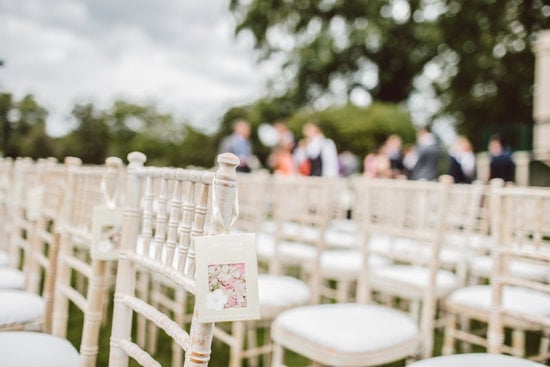The traditional concept of a religious wedding often brings to mind the image of a church ceremony, with its sacred atmosphere and timeless rituals. However, in recent years, there has been a noticeable shift in the choice of wedding venues, with many couples opting for non-traditional locations that better reflect their personal style and beliefs. This raises the question: can you have a religious wedding outside a church?
As couples seek to personalize their wedding experience, the idea of holding a religious ceremony in alternative venues has gained traction. From botanical gardens to historical landmarks and private estates, there are numerous options for couples who wish to incorporate their faith into their special day without adhering to the traditional church setting. Understanding the specific requirements and guidelines set by different religious traditions is crucial when considering an unconventional wedding venue.
Moreover, seeking approval from religious authorities and finding an officiant who can customize the ceremony to the couple’s preferences are essential steps in planning a meaningful and sacred wedding outside of a church. In this article, we will explore the various aspects of having a religious wedding outside a traditional church setting, from understanding religious requirements to addressing legal and logistical considerations.
Understanding Religious Requirements
When it comes to having a religious wedding outside of a church, it is important to understand the specific requirements and guidelines set by different religious traditions for a wedding ceremony. While the traditional concept of religious weddings is often associated with a church setting, many religions do allow for flexibility in choosing the wedding venue.
For example, in Judaism, a couple can have a traditional Jewish wedding ceremony in a variety of locations as long as certain religious requirements are met.
The significance of a sacred and holy place for a religious wedding varies across different faiths. In Christianity, the church is considered to be a consecrated and sanctified space where couples exchange their vows before God and the congregation.
However, some denominations within Christianity may permit weddings in other meaningful locations under certain conditions. It’s important to consult with religious leaders or clergy to understand the specific requirements and guidelines for having a religious wedding outside of a traditional church setting.
In addition to understanding the religious requirements, it is also essential to consider how alternative venues can accommodate these requirements while still maintaining the sacredness and symbolism of the wedding ceremony. Many botanical gardens, historical landmarks, and private estates have become popular choices for non-traditional religious weddings due to their natural beauty and serene atmosphere.
Couples who wish to have a religious wedding outside of a church should carefully research potential venues and discuss their plans with both their chosen officiant and the venue staff to ensure that all necessary religious elements can be incorporated into the ceremony.
| Religious Traditions | Flexibility in Wedding Venue |
|---|---|
| Judaism | Allows flexibility as long as certain requirements are met |
| Christianity | Varies by denomination; some may permit non-church weddings under certain conditions |
Alternatives to a Church Wedding Venue
While the traditional concept of religious weddings being held in a church is deeply ingrained in many cultures and faith traditions, there is a growing trend of couples seeking alternative venues for their sacred vows. This shift towards non-traditional wedding venues has prompted many to ask: “Can you have a religious wedding outside a church?” The answer is yes, as there are several alternative settings that can accommodate a meaningful and religiously significant ceremony.
One popular alternative venue for a religious wedding is a botanical garden. These serene and picturesque locations offer natural beauty and tranquility, creating a peaceful setting for an outdoor ceremony. Similarly, historical landmarks such as castles, estates, or manor houses can provide an elegant and grand backdrop for a religious wedding. Private estates and vineyards also offer the charm of a secluded and intimate setting for couples seeking to exchange their vows in nature.
When considering an alternative venue for a religious wedding, it is important to keep in mind the significance of the location. While not every place may have the same spiritual reverence as a traditional church, many venues offer their own unique qualities that can still honor the sanctity of the occasion. Couples should carefully choose a setting that resonates with them spiritually and allows them to incorporate their beliefs into the ceremony.
Another consideration when exploring alternatives to a church wedding venue is how to incorporate religious elements into the ceremony. Whether it’s through readings of sacred texts, blessings from religious leaders, or traditional rituals, couples can work with their officiant to weave these elements into the fabric of their non-traditional wedding venue.
| Alternative Venue | Key Characteristics |
|---|---|
| Botanical Gardens | Natural beauty, serenity, outdoor setting |
| Historical Landmarks | Elegance, grandeur, unique ambiance |
| Private Estates/Vineyards | Seclusion, intimacy, picturesque views |
Seeking Approval From Religious Authorities
In the traditional concept of weddings, religious ceremonies are often held within the sacred confines of a church. However, as couples seek to personalize their wedding experiences, there has been a growing trend towards non-traditional wedding venues.
This shift has prompted many couples to wonder if they can have a religious wedding outside a church. While it is possible to have a religious wedding outside of a church, seeking approval from religious authorities is an important step in ensuring that the ceremony aligns with the couple’s beliefs and values.
Understanding the specific requirements and guidelines set by different religious traditions is crucial for couples considering a non-traditional venue for their religious wedding. Some religions may have strict guidelines regarding the sanctity of the marriage ceremony and the place where it is conducted. It is essential for couples to engage in open communication with their respective religious leaders or clergy to understand any limitations or requirements for holding a religious ceremony outside a traditional church setting.
Before planning a religious wedding outside a church, couples should seek approval from their chosen officiant or religious leaders. This process may involve discussing the couple’s desire for a non-traditional venue and obtaining guidance on how to maintain the sanctity and solemnity of the ceremony.
Couples may need to undergo pre-marital counseling or other preparatory steps as prescribed by their faith tradition before receiving approval to hold their wedding in an alternate location. Additionally, some religious authorities may require officiants to be ordained or sanctioned by their institution in order to perform ceremonies outside of traditional church settings.
One advantage of seeking approval from religious authorities for a non-traditional wedding venue is the opportunity to customize the ceremony. With guidance from officiants or clergy, couples can incorporate meaningful rituals, prayers, and blessings into their wedding ceremony while respecting the traditions and beliefs of their faith. By personalizing these elements, couples can create a sacred and deeply meaningful experience regardless of the venue where their ceremony takes place.
Incorporating Religious Elements
With the growing trend of non-traditional wedding venues, many couples are now exploring the possibility of having a religious wedding outside of a church. This shift in perspective raises an important question: can you have a religious wedding outside a church? The answer is yes, and there are various ways to incorporate religious elements into a non-traditional wedding venue while maintaining the sanctity and solemnity of the ceremony.
Ways to Incorporate Religious Rituals
One way to incorporate religious rituals into a non-traditional wedding venue is by working with a knowledgeable officiant or clergy who can guide the couple on how to adapt traditional rites for the chosen location. For example, if the couple wishes to have a Catholic ceremony in a botanical garden, the officiant can suggest meaningful readings, prayers, and blessings that can be included in the outdoor setting while still adhering to the religious requirements.
Choosing Meaningful Symbols
Another way to infuse religious elements into a non-traditional venue is by incorporating meaningful symbols that hold significance within the couple’s religious tradition. This could include using ceremonial objects such as crosses, unity candles, or other symbolic items during the wedding ceremony. By choosing symbols that hold deep personal meaning for the couple, they can create a spiritually rich and meaningful experience regardless of the location.
Maintaining Sacred Atmosphere
Regardless of where the ceremony takes place, it is essential for couples to work with their officiant and venue staff to maintain an atmosphere of reverence and sacredness throughout the ceremony. This may involve creating designated spaces for specific rituals or ensuring that ambient noise does not detract from the spiritual focus of the occasion.
By carefully planning and coordinating these details, couples
Personalized Religious Wedding Ceremonies
When it comes to planning a religious wedding, couples are often faced with the traditional expectation of having their ceremony in a church. However, in today’s modern and diverse society, many couples are seeking alternative venues that can accommodate a religious wedding outside of a traditional church setting. This shift has sparked a discussion about the possibility of having a religious wedding ceremony in non-traditional locations.
One common question that arises when considering a religious wedding outside of a church is whether it is possible to maintain the sacred and solemn atmosphere of the ceremony. The answer is yes, it is possible to have a religious wedding outside of a church while still upholding the traditions and significance of the ceremony.
Here are some key considerations for couples who wish to personalize their religious wedding ceremonies in non-traditional venues:
- Choosing an alternative venue that holds significance: Whether it’s a botanical garden, historical landmark, or private estate, couples can select a venue that holds personal or spiritual meaning to them as a couple.
- Seeking an officiant who can customize the ceremony: It’s essential for couples to find an officiant who understands their desire for a personalized religious ceremony and is willing to accommodate their beliefs and values. This may involve working closely with clergy or religious leaders to ensure that the ceremony reflects the couple’s spiritual journey.
- Incorporating unique rituals and blessings: Couples can work with their officiant to incorporate specific religious rituals, prayers, and blessings into the ceremony. This can add depth and personal meaning to the wedding while maintaining its sacred nature.
By following these steps, couples can create a personalized religious wedding ceremony outside of a church that reflects their unique love story and spiritual beliefs.
Legalities and Logistics
Having a religious wedding outside of a church can be a meaningful and spiritual experience for couples who wish to celebrate their union in a non-traditional setting. However, it’s important to consider the legal and logistical aspects to ensure that the ceremony is valid and legally recognized. Here are some key considerations for couples planning a religious wedding outside of a church:
- Marriage License: One of the first steps in planning a religious wedding outside of a church is obtaining a marriage license. Each state or country may have specific requirements for obtaining a marriage license, so it’s essential to research and comply with the necessary procedures.
- Officiant Approval: Depending on the religious tradition, seeking approval from religious leaders or clergy to officiate the wedding outside of a church is crucial. Some traditions may require specific qualifications or credentials for an officiant to solemnize the marriage.
- Venue Coordination: When choosing an alternative venue for the religious wedding, couples should coordinate with the venue staff to ensure that it meets the necessary requirements for hosting a religious ceremony. This may include accommodating specific rituals or ensuring access to sacred spaces within the venue.
In addition to these considerations, couples should also be aware of any additional legalities specific to their chosen location and consult with legal professionals if needed. By carefully addressing the legal and logistical aspects of having a religious wedding outside of a church, couples can ensure that their ceremony is not only spiritually fulfilling but also legally binding.
Overall, while there may be extra steps involved in planning a religious wedding outside of a church, with thorough preparation and attention to detail, couples can create a beautiful and meaningful ceremony that reflects their beliefs and values. It’s important for each couple to do their due diligence in researching and complying with the legal requirements while coordinating with their chosen venue and seeking approval from religious authorities as needed.
By taking these steps, couples can have a truly special and sacred experience on their wedding day.
Conclusion
In conclusion, the question “can you have a religious wedding outside a church” is one that many couples are considering in today’s changing wedding landscape. As traditional concepts of marriage evolve, so do the options for where and how couples can celebrate their union. While the church has long been considered the quintessential venue for a religious wedding, there are now alternative options available that allow couples to honor their faith in non-traditional settings.
When considering a religious wedding outside a church, it is important for couples to understand the specific requirements and guidelines set by their religious tradition. Seeking approval from religious authorities, such as clergy or religious leaders, is also crucial to ensure that the ceremony maintains its sacred and holy nature. Additionally, incorporating religious elements and rituals into a non-traditional wedding venue can help uphold the sanctity and solemnity of the ceremony.
Ultimately, personalized religious wedding ceremonies offer couples an opportunity to reflect their beliefs and values in a meaningful way. By finding an officiant who can customize the ceremony to their preferences and navigating the legalities and logistics associated with an outdoor religious wedding, couples can create a truly unique and sacred experience on their special day. It is important for couples to explore all available options in order to have a memorable and authentic religious wedding outside of a church.
Frequently Asked Questions
Can a Catholic Wedding Take Place Outside of a Church?
A Catholic wedding traditionally takes place in a church, as it is a sacrament that is meant to take place within the sacred space of the church. However, in some circumstances, a Catholic wedding may be allowed outside of a church with permission from the local bishop.
Why Do Catholic Weddings Have to Be in a Church?
Catholic weddings are required to take place in a church because the ceremony is considered to be a sacrament, and the church building is consecrated ground. The sacredness of the church provides a fitting and reverent setting for the exchange of vows and the blessing of the marriage.
How Do You Plan a Wedding Without a Church?
Planning a wedding without a church can involve finding an alternative venue that holds significance for the couple, such as a beautiful outdoor location or a meaningful indoor space. The couple should work closely with their priest or deacon to ensure that their non-traditional wedding plans align with the teachings of the Catholic Church.

I have been involved in marriages for over 20 years helping couples and singles understand more about them.





